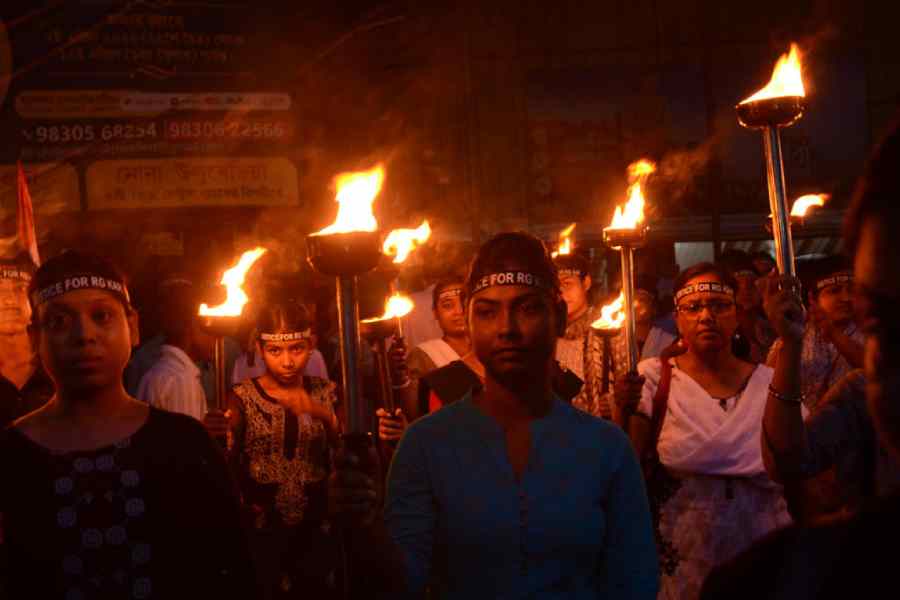The massive protests by women and men on the nights of August 14 and 15 to protest against the rape and murder of a junior doctor at the R.G. Kar Medical College and Hospital through the ‘Reclaim the Night’ movement were unprecedented. The protests may have been concentrated in Calcutta and Bengal’s districts but there were demonstrations in various other cities in India. The agitation brought to mind the public protests after the 2012 Delhi gang rape and echoed the Arab Spring in the 2010s, which started in Tunisia in response to the self-immolation of a fruit-seller on account of economic stagnation and corruption and, later, spread to Libya, Egypt, Yemen, Syria and Bahrain. The two movements are different in scale, but they are similar in one aspect. Both are people’s movements without any prominent leadership.
The ‘Reclaim the Night’ movement and the ensuing public protests have raised hopes of justice for the victim but the expectation of a long-term improvement in the safety and dignity of women is likely to be belied. Such a possibility cannot be ruled out especially if one were to examine the outcome of the Arab Spring. The hope of ending corruption, greater political participation of the masses, and economic equity faded gradually with no major changes in these nations. Instead, the Arab Spring incited political struggles among the elites which hardly helped the cause of the common people.
Most movements produce a public good that everyone can benefit from. A safe society for women is a public good. But one problem of public-good production is that people want to refrain from contributing to it even though they like to avail of the benefits. The other problem is one’s contribution may either encourage or discourage subsequent potential contributors. The contribution of the initial few thus becomes crucial and constitutes the critical mass of the movements.
In the recent protests in Bangladesh, the students provided the critical mass, led the movement, and are still part of an interim government. However, in the cases of Arab Spring and ‘Reclaim the Night’, the movements were shorn of a distinct leadership. But then how were these movements mobilised in the first place? Such mobilisations are possible when the cost of mobilisation or critical mass is minimal. Social media, in this instance, reduced the cost, making the mobilisation easier and enabling the movement to acquire a leaderless but mass character.
A leaderless movement may be successful in the short run. But the chances of it succeeding in bringing substantive reforms in the system in the long run are usually bleak. The pro-Jallikattu movement to revoke the Supreme Court’s ban on the traditional sport of bull-taming in Tamil Nadu was an example of the former. What is required to make society safe for women in perpetuity, on the other hand, are institutional reforms.
The introduction of a few more laws would make no difference to the present situation. The grim reality has not changed much by making laws more stringent or allocating funds for women’s safety. Countless incidents of atrocities are taking place against women and children throughout the country. The remedy lies in institutional reforms, which can eliminate rent-seeking behaviour on the part of the institutions and the powers that be. The students in Bangladesh are attempting this very thing: to build a just and democratic system through institutional reforms by leading from the front. We badly need leaders for a movement in favour of a safe, inclusive and just society, which would be able to curb crime against women.
Indranil De is Professor, Institute of Rural Management, Anand. Views are personal










